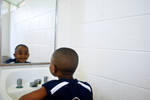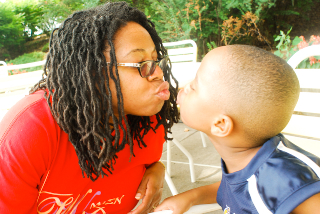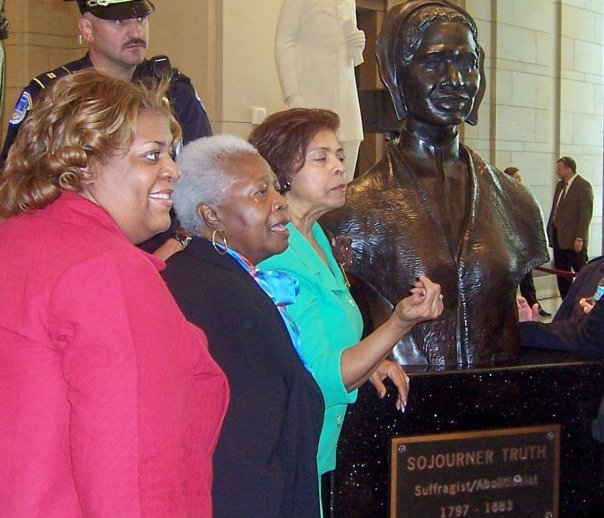He had been educated in a safe environment, receiving instruction in a place that showed him love and encouragement, affirmed his heritage and strengthened his spirituality. Now it was time to integrate and the powers that be tried to block his kind. This was not Alabama, Arkansas or Mississippi or the 1950s or ’60s. This was Michigan—Detroit—in 2009 in an urban school system that was rejecting a six-year-old black boy because he was an undesirable; he was a homeschooler.
This is the story of Joshua Lee Smith, my firstborn, who I home schooled for his first three years of his formal education. My spiritual conviction led me to do so, and now my spiritual conviction was leading me to place him in the public school system. Before the end of last school year, I met with his new school’s principal. She gave me a tour of the school, answered all my questions about her and the school, and told me when I enrolled him that I would need normal documentation, in addition to his report card and the curriculum that I used. She was quite pleasant, very accommodating and looking forward to Joshua integrating. But with the recent shakeups in the Detroit Public Schools (DPS), I had been checking news reports to see if there had been any changes with Joshua’s school. Three weeks ago I found that the school had a new principal, who wasn’t so accommodating.
When I called her to make sure that the enrollment documentation that I had for Joshua was still sufficient, she dismissed the curriculum (“I haven’t heard of that.”) and the report card, by saying, “Who would give him a report card?” doubting my objectivity as his teacher. “You just have to be very careful with homeschooling,” she said. “It has to be done every day,” suggesting a slack in commitment on the part of home educators. She eventually told me that all the students (new and returning, homeschooled and non-homeschooled) would be tested on the first day of school to see if they were in the appropriate grade, and when I enrolled him, she only took his immunization record and birth certificate and said that his enrollment was complete.
On the Thursday before Labor Day, essentially the first day before school, a school official called me saying that I needed to show documentation that my son had passed the 1st grade and is qualified to be promoted to the 2nd grade, and this was the only way that Joshua would be enrolled. She nor the principal, however, knew what this proof was but referred me to a central office number, that kept me on hold for an hour and twenty minutes; no one ever came to the phone to help me. While on hold, I called two personal contacts—a ranking official in state government and an education reporter—to see if they could direct me to someone who could help. They offered to make calls for me. In the meantime, I contacted six offices, only to be told there is a DPS homeschooling office, and the director is the only person who could help me, and she wouldn’t be in until the first day of school.
Before I decided to enroll my son into DPS, I checked the State Board of Education and DPS websites and found no information regarding this burden of proof that was now being required. DPS, under the leadership of Emergency Financial Manager Robert Bobb, began the “I’m In” campaign to encourage parents to enroll their children into the troubled DPS system. I was trying to get my son “In” but was blocked at almost every turn, with even one worker chastising me, saying that I may have held my son back, and he couldn’t believe that “you kept your son at home and didn’t register him with the state.”
After six hours of the runaround and attacks all stemming from ignorance about and discrimination against home education, someone from Mr. Bobb’s staff called me, apologized for my mistreatment, talked to the principal on my behalf and gave me the final verdict: “Your son will be attending school on Tuesday. He will be in the 2nd grade and tested with the other children, and we’ll go from there.” He gave me his personal cell phone number and told me to call if I had any other concerns. I’m just glad Josh has been caught up in the drama of being in a new school instead of what it has taken to get him in the school. 
On this Labor Day, I want you to remember all those union workers, civil rights fighters and resourceful mothers who have struggled on behalf of the disenfranchised ones. I want you to remember that when you work, you don’t just work for yourself, but your presence and personal policies affect your life and the lives of generations to come. Make sure your stance doesn’t reek of George Wallace or Orval Faubus just because someone different from you seems to be a threat to all you know. Tomorrow, I hope that people see Joshua for who he is, a bright boy who was homeschooled and not a threat to tradition.
Copyright 2009 by Rhonda J. Smith



